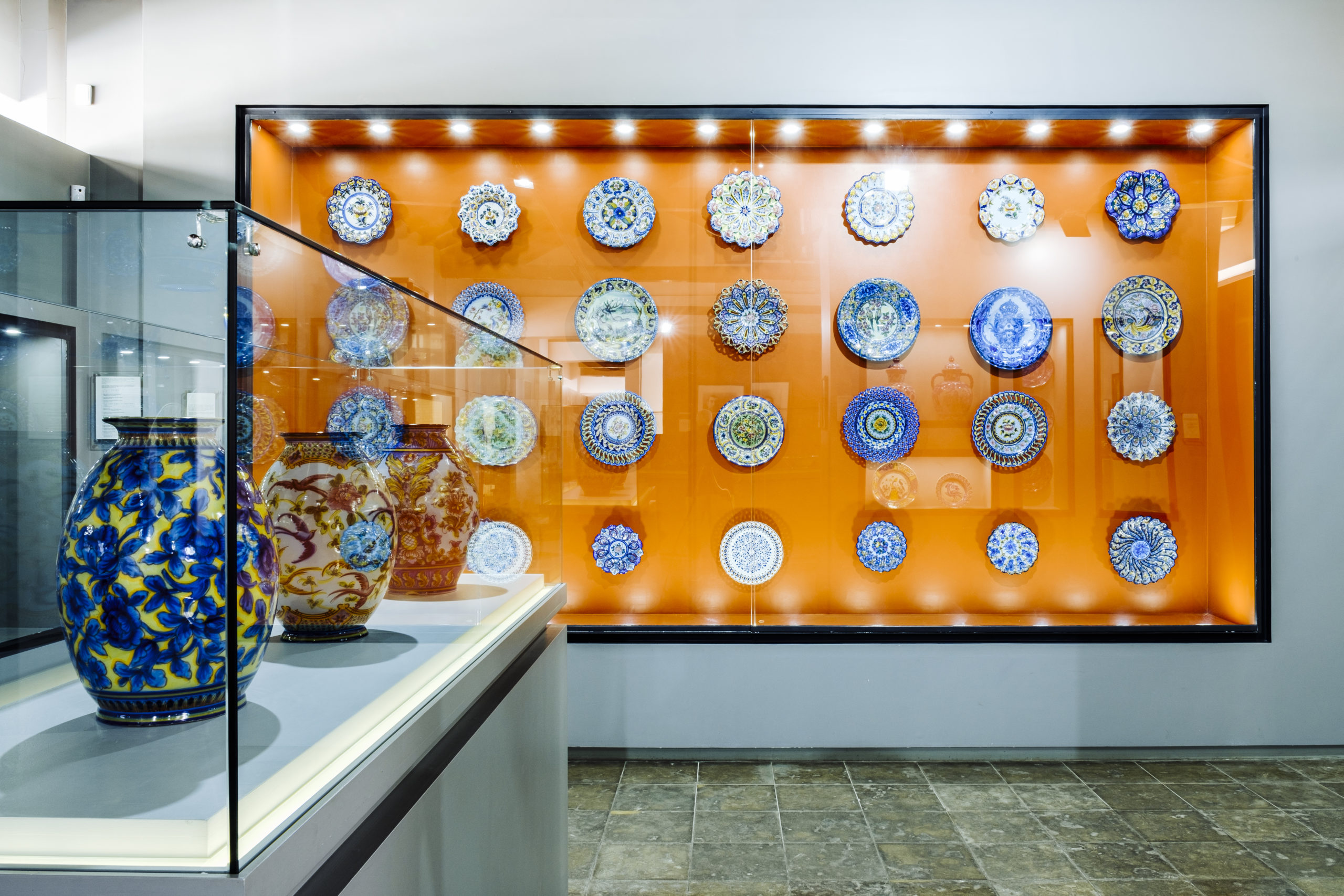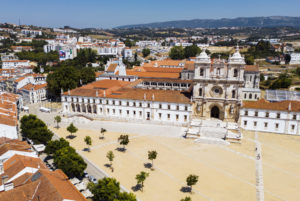Theme
 Município de Alcobaça. Foto: Rui Miguel Pedrosa | www.ruimiguelpedrosa.com |
“Ceramics in the Mediterranean World: From Antiquity to Contemporaneity” |
|
|
Since time immemorial, the Mediterranean Sea has witnessed important historical events that have conditioned all of humanity, establishing a bridge between the cultures of great empires, from north to south, from east to west. It is enough to mention some of them to understand the exceptional historical dimension of this part of the world: Phoenicians, Greeks, Carthaginians, Romans, Arabs and Ottomans, without forgetting the cultures that developed alongside them, such as the Hittites, Hebrews, Egyptians, Berbers, Palestinians, Italians, French, Spanish, Turks, Portuguese or Croatians, among others. Just as the Mediterranean has been a fruitful bridge between cultures, of irradiation of knowledge, it has also been a sea of confrontations, wars, forced migrations and, in our times, unfortunately, it has also been the grave of numerous emigrants who tried to cross it in very precarious conditions. Ceramics were not left out of this intense exchange of knowledge, giving names to some of the most striking productions, such as “faience” (due to its origin in Faenza, Italy), “majolica” (from Mallorca) or some of the most outstanding ceramic techniques, such as enamels, lustres or bicameral kilns (called “Moorish” in Spain), which came to Europe through Islam in the Middle Ages, or Portuguese tiles, whose name derives from Arabic “al-zulaich”, which means small polished stone. Curiously, Portugal is not bathed by the Mediterranean, but it can be considered a country with a Mediterranean culture oriented towards the Atlantic, which gives it a very unique vision. The fact that the International Academy of Ceramics has chosen Portugal to celebrate its 51st Congress is no coincidence, since there are few countries in the world where ceramics are as deeply rooted in their culture and are “national art” as in Portugal. There, ceramics can be found everywhere, from the wonderful tiles that cover the facades and interiors of the most important and beautiful historical buildings, to the extraordinary porcelain production of Vista Alegre, passing through such unique productions as that of Bordalo Pinheiro, the black tableware from Tondela, the roosters from Barcelos or many other traditional productions that give a unique character to Portuguese ceramics. To this we must add contemporary art ceramics that are increasingly impacting the universe of global ceramics. We are not surprised that the local institution that organizes the Congress, the Portuguese Association of Ceramic Cities, has 29 affiliated municipalities, a very high number for a country of the size of Portugal. To all this we still have to add a great utilitarian and decorative ceramics industry, one of the most powerful in Europe, which exports the vast majority of its production. |
The IAC 2024 Congress will focus on ceramics in the Mediterranean world, from Antiquity to current times, taking place above all in two days of debates and short lectures: the first, focused on “Ceramic Confluences in the Mediterranean: a historical vision”, which will look at how, throughout history, the different peoples and cultures around the Mediterranean have influenced each other to produce wonderful ceramic creations, with techniques that have lasted to this day. The second day will focus on the study of what is currently happening in the field of Mediterranean ceramics. We want to know what the current dynamics are, what the reality is, what the relationships are between the different territories, what the confrontations are, what riches unite and separate ceramic cultures and what their weaknesses are. We are interested in knowing what the artists of these lands are doing and their future prospects. We want to debate and talk about all this in Alcobaça and Caldas de Rainha, in a relaxed atmosphere, but with the highest level of demand. As always, the Congress will be accompanied by several exhibitions of national and international ceramics, a route through the south of Portugal (before the Congress) and another through the north of the country (after the Congress), an evening dedicated to UNESCO, another dedicated to giving the welcome the new members and, of course, we will have the general assembly of the Academy and a nice farewell party. In a country with a wonderful climate, unsurpassed gastronomy and in a cultural environment and quality of life one of the best in the world, we are sure that the Congress will be a success, both in terms of content and participation and that it will be very well remembered on the part of the attendees. Please don’t let anyone miss it! |
Registration fees & conditions
Online registration is now closed! Registration is now only possible on site.
(read more...)PROGRAMME
The Congress programme is now live.
(read more...)Locations
The 51st Congress is hosted in the cities of Alcobaça and Caldas da Rainha, Portugal.
(read more...)


